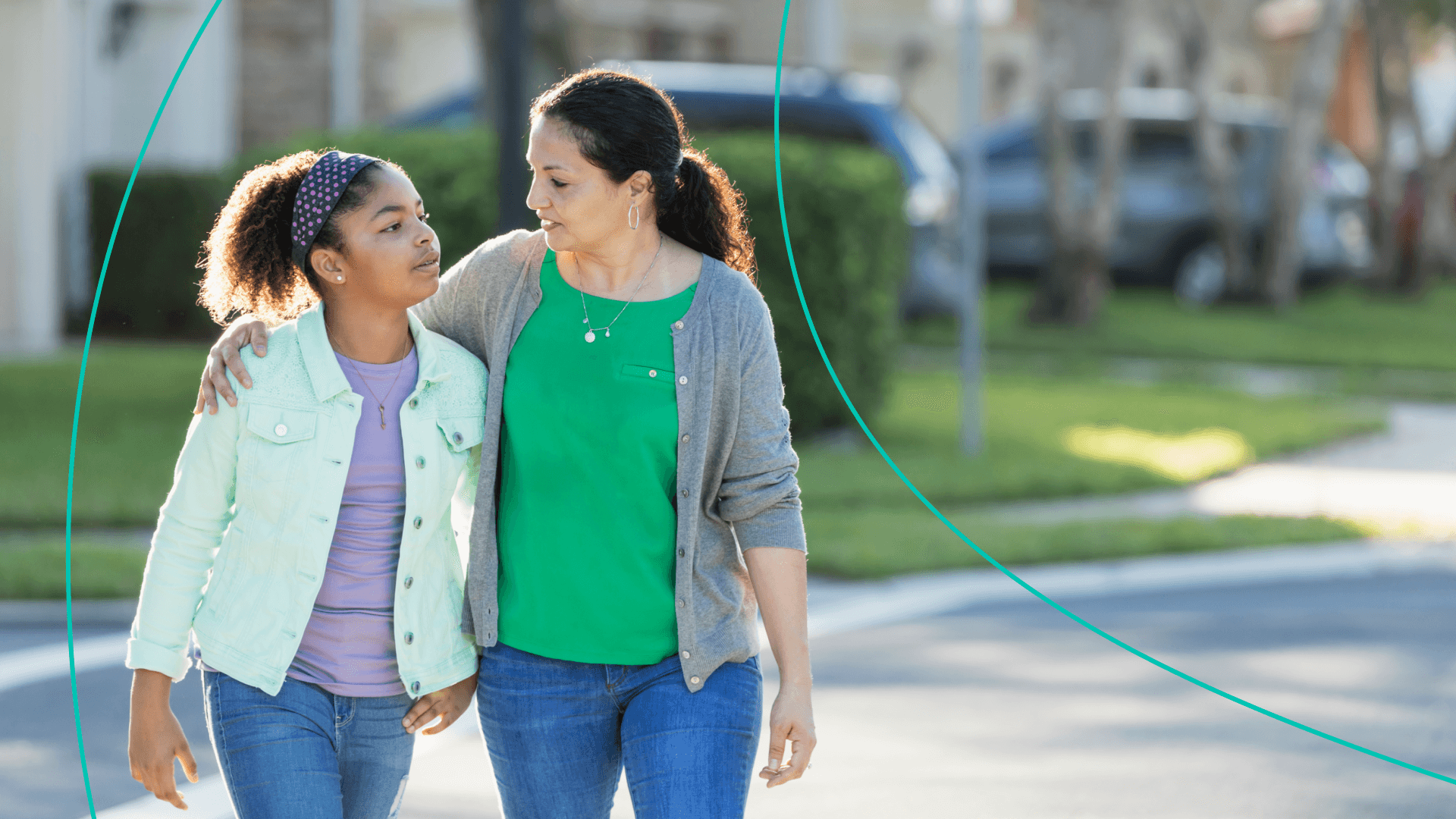We know: This week has been a lot to process, with all eyes on the Israel-Hamas war. So we’re using this weekend’s newsletters to help you feel supported. Keep an eye out for more tomorrow.
thing to know

How To Talk to Kids About the Israel-Hamas War
One of the hardest parts of this devastating week? Trying to contain its impact on kids. While it may be tempting to avoid talking about the war entirely, experts say it’s generally better to start the conversation — particularly since your child could hear about it elsewhere. Here’s some advice on where to begin…
Check in with yourself. Before approaching your kid, identify what you are thinking and feeling about the conflict (pro tip: it could be helpful to write this down or talk it out with a friend). Children often take emotional cues from adults, so remaining calm and rational will help your child do the same. Then, brush up on the facts — kids do have lots of questions. While you may not have all the answers, it’s helpful to have a basic understanding of what’s happening. Some places to get started: The Associated Press, Reuters, and our previous newsletters.
Find out what they know. You want to meet your kid where they are, so choose a time and place when your kid is likely to be most comfortable opening up. (Worth noting: It’s best to avoid talking just before bed.) Get up to speed by asking questions like: What have you heard about what’s happening in Israel and Gaza? How do you feel about that?
Be honest and age-appropriate. Ultimately, you know your child best, so tailor the convo for them. Regardless of their age, it’s important to validate their emotions and acknowledge whatever they’re feeling is natural. For younger kids (through elementary school), experts recommend being clear and concise. If your child asks why people are fighting, you might respond, “They are fighting over who’s in charge.” For older kids, lead with honest answers, provide context and history, and acknowledge when you don’t know something. Also, make sure to choose your words carefully: Conflicts between groups of people or specific regions can lead to prejudice and discrimination. Avoid referring to one side as “the bad guys” or “evil.” And use the word “Hamas” rather than “Palestinians” when talking about who Israel is at war with.
Limit social media use. As you already know, graphic images and videos have flooded feeds. So much so that some schools are recommending parents delete apps like TikTok and Instagram from their kids’ phones. While experts agree that it’s best to keep younger children away from media coverage, the reality is that it’s much harder — if not impossible — to do that with older kids. In that case, ask your kid to show you the images or videos that they’ve found scary. You can also use it as an opportunity to inform them about misinformation on social media.
Continue to check in. The conversation shouldn’t stop there, especially since your kid may need time to process and reflect. Continue asking how they’re feeling and if they have any questions. And try to maintain a solid routine, since structure can help children feel reassured. Also important to note? Any changes in their mood and behavior, including eating and sleeping patterns. If those persist, it might be helpful to seek professional help.
extra, extra
Looking for additional parenting support? Here are a few resources to keep on hand…
CLICK: “Supporting Youth Affected by the Violence in Israel and Gaza.” This guide, from the National Association of School Psychologists, has tips for families and educators on how to have age-appropriate conversations and how to manage kids’ emotional reactions.
READ: “What to Do When the News Scares You” by Jacqueline B. Toner. Geared toward ages 6 to 12, this book — written by a retired clinical psychologist with more than 30 years of experience — helps kids understand and process all the information around them. Plus, it provides ideas for how to calm worries and anxiety.
LISTEN: “How To Talk to Kids About Difficult Things.” In this episode of NewYork-Presbyterian’s podcast, two experts from its Youth Anxiety Center discuss ways that parents can start — and continue — tough convos with kids, while keeping their mental health in mind.
FOLLOW: Dr. Becky Kennedy (aka, Dr. Becky). The clinical psychologist — and “millennial parenting whisperer” — has garnered more than 2 million Insta followers, thanks to her relatable, seemingly off-the-cuff videos on regulating emotions, setting boundaries, and, yes, discussing complicated, devastating conflicts.
Forward this to a friend. Click here.
skimm picks

Here are today’s recs to help you live a smarter life…
1. Wearable tech that can help you relax.
Apollo uses soothing, noninvasive vibrational waves to help encourage clearer focus, better sleep, and reduced anxiety. A smart solution for frazzled nerves.
2. A new multicooker from Our Place.
Introducing the Dream Cooker, aka the only cooking tool you really need. More good news in the world of multifunctional gadgets: The cult-fave (and adorable) Wonder Oven is finally back in stock.
3. Free shipping on First Aid Beauty products.
This set includes some of the brand's best-selling products, like a hydrating cleanser and radiance-boosting exfoliating pads. Psst...find more beauty deals with free shipping here.
Psst…love our recs? Follow @skimmshopping on Instagram for more products, gifts, and services that are actually worth the hype (and the price tag).
Photo by kali9 via Getty Images
Design by theSkimm
*PS: This is a sponsored post.
Live Smarter
Sign up for the Daily Skimm email newsletter. Delivered to your inbox every morning and prepares you for your day in minutes.